Erica Verrillo's Blog, page 103
July 1, 2013
Another One Bites the Dust – Hachette Acquires Hyperion
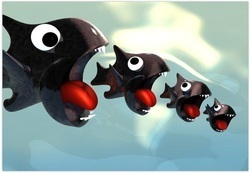 Technically, Hyperion bit the dust before it was conceived, but the recent sale of the Disney-owned imprint marks another step in the trend toward reducing the publishing world to a few powerful giants. In this case, Hyperion, whose list includes bestsellers such as Michael J. Fox’s autobiography, “Always Looking Up” and Mitch Albom’s, “The Five People You Meet in Heaven,” will join Hachette, increasing the Hachette Group’s backlist by more than a thousand titles.
Technically, Hyperion bit the dust before it was conceived, but the recent sale of the Disney-owned imprint marks another step in the trend toward reducing the publishing world to a few powerful giants. In this case, Hyperion, whose list includes bestsellers such as Michael J. Fox’s autobiography, “Always Looking Up” and Mitch Albom’s, “The Five People You Meet in Heaven,” will join Hachette, increasing the Hachette Group’s backlist by more than a thousand titles. The news should come as no surprise. Hyperion announced it was selling off most of its adult backlist last March in an effort to reorient the imprint “synergistically” with its ABC programming. In this case, synergy does not mean “the combination of multiple elements to produce an effect greater than its parts.” There is only one part: TV.
The creation of print tie-ins to television shows hardly qualifies as an addition to the content, or the impact, of the original. However, in limiting its scope to what it can profitably sell, Disney is only doing what everyone else in the industry is doing - hiding from Random House/Penguin and the other Big Five. It is only by focusing on undesirable, or unpoachable, products that everyone else in the industry can escape being swallowed at a future date, or simply being chewed up right now into an unprofitable pulp.
The clock started ticking, not last March when Hyperion announced its backlist sell-off, but last September, when Hyperion president Ellen Archer – known for her forward-thinking views on cutting author advances – hired former talent agent Laura Hopper as editorial director for franchise publishing. This marked Hyperion’s first serious move to increase “product” at the expense of whatever it was writers once did. The following January, Ruth Pomerance, a long-time veteran of the Hollywood talent scene, was brought aboard as senior editor, where she continued to do what she had been doing for the last 30 years – “synergy” (i.e. reformatting books into other media, and vice versa).
In spite of these last-ditch efforts to stay in the game, Hyperion was a lost cause. Transforming TV shows into original content (what we used to call “books”) wasn’t enough to convince the Disney execs that they should stick to their publishing guns.
According to Publisher’s Weekly, Disney announced that it would be retaining its children’s imprints and any media-related titles, such as its Castle series, which ties into the ABC television show about the fictional detective novelist, Castle. In what can only be described as nearly excruciating synergy, the “Castle” books are authored by the fictional character Richard Castle.
Originally published on Blogcritics.
Published on July 01, 2013 06:43
June 29, 2013
Kindle Opens Fan Fiction Store With Self-Service Submissions
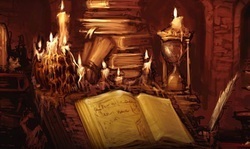 Inspired no doubt by the fabulous success of Fifty Shades of Grey, Amazon has started its own fan fiction store, Kindle Worlds. Anybody can write new stories inspired by a selection of movies, games, TV shows, comics, and of course, books. Like other Amazon platforms, authors can earn 35% royalties. (The 70% book option is not available.) Amazon has obtained licenses from Warner Bros. Television Group's Alloy Entertainment for Gossip Girl, Pretty Little Liars, and The Vampire Diaries; Valiant Entertainment for Archer & Armstrong, Bloodshot, Harbinger, Shadowman, and X-O Manowar; Hugh Howey's Silo Saga; Barry Eisler's John Rain novels; Blake Crouch's Wayward Pines series; and The Foreworld Saga by Neal Stephenson, Greg Bear, Mark Teppo, Eric Bear, Joseph Brassey, Nicole Galland, and Cooper Moo. More licenses are on the way. Read the FAQs here.
Inspired no doubt by the fabulous success of Fifty Shades of Grey, Amazon has started its own fan fiction store, Kindle Worlds. Anybody can write new stories inspired by a selection of movies, games, TV shows, comics, and of course, books. Like other Amazon platforms, authors can earn 35% royalties. (The 70% book option is not available.) Amazon has obtained licenses from Warner Bros. Television Group's Alloy Entertainment for Gossip Girl, Pretty Little Liars, and The Vampire Diaries; Valiant Entertainment for Archer & Armstrong, Bloodshot, Harbinger, Shadowman, and X-O Manowar; Hugh Howey's Silo Saga; Barry Eisler's John Rain novels; Blake Crouch's Wayward Pines series; and The Foreworld Saga by Neal Stephenson, Greg Bear, Mark Teppo, Eric Bear, Joseph Brassey, Nicole Galland, and Cooper Moo. More licenses are on the way. Read the FAQs here.Is this a good idea?
If you write fan fiction, this is a great idea. Personally, I am not a fan of anything Amazon can obtain a license for, and, even if they did, I'd have a really hard time writing fan fiction for The Complete Works of Shakespeare. The only drawback I can see to Amazon's latest bid to take over the world (mwahahahaha) is that getting a license for, let's say, Star Trek, will be nigh on impossible. In other words, die-hard fans of really popular shows still won't have an outlet for their frustrated desire to improve upon, continue, elaborate on and otherwise embellish the plots/characters of anything that could be truly lucrative. (Trust me, if they did, Spike would still be alive.)
So, if you inhabit any of the "Worlds" Amazon is currently allowing you to live on, go for it.
Published on June 29, 2013 10:36
June 26, 2013
The Secret to Epublishing Success
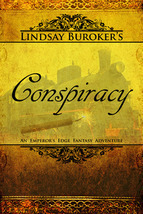 If you are weighing the economic pros and cons of epublishing, it always helps to have a report from the trenches, so to speak. Lindsay Buroker has done us all a huge favor by not only telling us how much her books are earning, but how she managed to support herself on ebook sales. The secret to success? Keep writing!
If you are weighing the economic pros and cons of epublishing, it always helps to have a report from the trenches, so to speak. Lindsay Buroker has done us all a huge favor by not only telling us how much her books are earning, but how she managed to support herself on ebook sales. The secret to success? Keep writing! Are More Authors Than You Think Making a Living Self-Publishing?
By Lindsay Buroker
About this time last year, I wrote up a blog post detailing how I was doing, financially speaking, on my new e-publishing endeavor (I got my start in December of 2010). When it came to ebook earnings, my grand total for March of 2011 was $724. At the time, I had two novels out, a couple of 99-cent short story collections, and the first Flash Gold novella (it, and my first Emperor’s Edge novel, are free in case you haven’t checked out my work yet and are dying to do so).
I didn’t think that $700 was too shabby considering I hadn’t been at the e-publishing thing for long. But when you look at how much time I was spending on promotion and writing, it wasn’t exactly a huge income either.
A year later, though, things have continued to pick up steam. I have two more novels out, two more novellas, and a new stand-alone short story. In March of 2012, I sold more than 4,000 ebooks, not including downloads of the freebies, and will earn over $5,000 (my ebooks range from 99 cents to $4.95).
Read the rest of Lindsay's illuminating article HERE.
Published on June 26, 2013 08:51
June 23, 2013
Epublishing Conundrums - Hang on to those digital rights!
 Now you see it, now you don't. The world of epublishing is in nearly constant flux.
Now you see it, now you don't. The world of epublishing is in nearly constant flux.With big publishers jumping into the fray, it has become increasingly difficult for new authors to make the choice between self-publishing their book as an ebook or signing on with a publisher and letting them handle all the things, including electronic rights.
There are numerous reasons for an author to hang on to as many rights as possible, but nowhere is this more important than digital rights. Why? Because ebooks are selling like hotcakes, and even though publishers charge less money per ebook, authors end up with a significantly smaller piece of the pie.
How does this work?
Publishers spend very little on ebooks. There are no printing costs, no warehouse fees, and no returns. As a result, ebooks cost less. But the reduction in retail cost is not commensurate with the reduction in production costs, which means profits are higher for ebooks.
Because ebooks retail for less, the result is lower royalties for authors. Traditionally, authors make 25% on ebooks, which seems like a lot compared to 10% on hard covers, but the disparity in production costs more than evens the playing field.
According to Brian DeFiore - who serves on the Board of Directors of the Association of Authors Representatives as Chair of the AAR Digital Rights Committee - this is how the deck is stacked in favor of the publisher.
"Every time a hardcover sale is replaced by an e-book sale, the publisher makes $2.20 more per copy and the author makes $1.58 less. If the author made the same $4.20 royalty on the e-book sale as he/she would have on a hardcover, the publisher would STILL be making an improved profit of $6.28."
In short, publishers are increasing profits on the backs of authors.
Are we angry? No, we are just disappointed.
For more details on this inequitable, yet somehow completely predictable, sleight-of-hand read Brian DeFiore's post here.
Published on June 23, 2013 10:30
June 20, 2013
Literary Agents Who Are Seeking New Writers
 If you are a new writer, finding an agent may seem like one of the twelve labors of Hercules. Chances are, if you've already sent off a few dozen queries only to receive generic rejections or, even worse, no reply at all, you are feeling hopeless. Take heart! There are agents who are looking for you! Often, these are young agents who have recently joined a literary agency and are building their client list. They may not have a lot of clout on their own, but if they are part of an established agency, editors will listen.
If you are a new writer, finding an agent may seem like one of the twelve labors of Hercules. Chances are, if you've already sent off a few dozen queries only to receive generic rejections or, even worse, no reply at all, you are feeling hopeless. Take heart! There are agents who are looking for you! Often, these are young agents who have recently joined a literary agency and are building their client list. They may not have a lot of clout on their own, but if they are part of an established agency, editors will listen.Here are three agents who are actively seeking clients. Make sure you read their full bios and check out their agency's submission guidelines before sending a query.
1. Roz Foster of Sandra Dijkstra Literary Agency
Roz is a talent scout for one of the top literary agencies on the West Coast. Right now she is looking for new talent. She is interested in literary and commercial fiction, women's fiction, literary sci-fi, and literary YA. She loves novels that make her feel like the author is tuned into a rising revolution - cultural, political, literary, or whatnot - that's about to burst on the scene. She looks for a resonant, lively voice; rich, irresistible language; complex characters with compelling development arcs; and a mastery of dramatic structure. Roz is also interested in non-fiction in the areas of current affairs, design, business, cultural anthropology/social science, politics, psychology and memoir. Here, she looks for driven, narrative storytelling and sharp concepts that have the potential to transcend their primary audience. Please note that Roz is specifically not interested in: sports, cookbooks, screenplays, poetry, romance, and children's middle-grade/picture books.
2. Sarah E. Younger of Nancy Yost Literary Agency
Sarah is interested in representing all varieties of romance / women's fiction: contemporary, historical, Western, sports, regency, inspirational, urban fantasy, paranormal, young adult and any combination thereof. Out of all of those, she's really love to see a contemporary military romance, a great/quirky historical, or a really awesome inspirational romance. She also enjoys stories with a strong supporting cast of animal characters: horses, dogs, cats.
3. Bridget Smith of Dunham Literary, Inc.
Bridget is looking for middle grade and young adult novels in a range of genres, including fantasy and science fiction, historical fiction, romance, and contemporary. However, she's also keeping an eye out for any book that bends the rules of genre or any books with underrepresented or minority characters. When it comes to adult fiction, Bridget especially wants fantasy and science fiction, historical fiction, and literary women's fiction, as well as informational, literary nonfiction, especially science or history written by experts for a general audience.
Published on June 20, 2013 08:51
June 16, 2013
HAVE YOU WRITTEN A LOVE STORY? THIS IS YOUR CHANCE TO WIN $10,000 AND GET YOUR BOOK PUBLISHED!
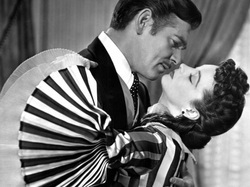 Quirk Books has announced its “Looking for Love” Fiction Contest. First prize is $10,000 and publication by Quirk Books. They are looking for love stories that are fresh, fun, and strikingly unconventional. Boy Meets Girl. Girl Meets Girl. Girl Meets Shark. Shark Meets Pirate. Anything goes! (Except vampires.)
Quirk Books has announced its “Looking for Love” Fiction Contest. First prize is $10,000 and publication by Quirk Books. They are looking for love stories that are fresh, fun, and strikingly unconventional. Boy Meets Girl. Girl Meets Girl. Girl Meets Shark. Shark Meets Pirate. Anything goes! (Except vampires.)Best of all, this contest does not require an entry fee. It's FREE.
The contest deadline is October 1st, 2013. For official rules and entry form, go HERE. Good luck!
Here are the rules.
1. There is no entry fee.
2. The contest is open to any professional or nonprofessional writer, regardless of nationality. Writers may only enter one manuscript into the contest—so take your best shot. If you are under the age of 18, you must have the permission of your parent or legal guardian to enter the contest.
3. All manuscripts submitted: a) must be original works of book length (at least 50,000 words) written in the English language by the contestants; b) must not violate the rights of any third party; and c) must feature a love story. The editors of Quirk Books will have sole and absolute discretion and authority to decide if a manuscript meets these criteria. All decisions will be final.
4. All entries must be postmarked no later than October 1, 2013 and must include:
a) A double-spaced and neatly typed copy of the manuscript (photocopies are acceptable), with pages numbered consecutively from beginning to end. The author’s name should appear only on the title page and otherwise not appear anywhere on the manuscript pages.
b) A synopsis of no more than 250 words.
c) This application form, signed and completed.
d) a self-addressed stamped envelope if you would like us to acknowledge
receipt of your manuscript.5. All entries must be mailed to: “LOOKING FOR LOVE” FICTION CONTEST, Quirk Books, 215 Church Street, Philadelphia, PA 19106.
6. You should keep a copy of the manuscript for your own protection. Quirk Books will not be responsible for lost, stolen, mistransmitted, or mislaid manuscripts. Because of the great volume of submissions (and because, hey, there’s no entry fee) we anticipate manuscripts will not be returned. Please do not send return postage or envelopes.
7. Manuscripts submitted to the contest cannot be shopped by literary agents or other third parties during the submission period, which runs from June 1, 2013, through October 1, 2013. However, you may be represented by a literary agent provided that you—and not your agent— agree to abide by these official rules.
8. The winner will be selected by the editors of Quirk Books. Quirk reserves the right not to select any winner if, in the sole opinion of the editors, none of the manuscripts submitted are of publishable quality. An attempt will be made to notify the contest winner, if any, no later than January 15, 2014.
9. If a winner is selected, Quirk Books will be prepared to publish the winning manuscript pursuant to Quirk’s standard form author’s agreement with the contestant. The winner will receive an advance against future royalties of $10,000 after that standard form author’s agreement has been executed by both parties. Additional terms will be determined by Quirk Books at its sole discretion. The contestant may request reasonable changes in the offered terms, but Quirk Books shall not be obligated to agree to any such changes. Quirk Books may, but will not be required to consider for publication manuscripts submitted by other contestants.
10. No critical evaluation or commentary will be offered by the editorial staff of Quirk Books unless, in the sole opinion of the editorial staff, evaluation or commentary is appropriate in the case of a manuscript being considered for publication.
11. This competition is void where prohibited or restricted by law.
12. Good luck!
Published on June 16, 2013 05:50
June 13, 2013
Top 5 Online Resources for Short Story Markets
 "Leo Tolstoy" by Nicolai Ge It is received wisdom that in order to get a book published you should start by placing short stories in literary magazines. Like most received wisdom, this is hogwash. It is easier to get a book published than it is to get a short story placed in any kind of reputable literary magazine. (That being said, there are literary magazines of ill repute, and your stories may wind up sliding down the slippery slope into a few of them.) Not only is it hard to break into the literary magazine scene, it takes forever. Literary magazines are often staffed by underpaid, overworked grad students, who will take a minimum of three months to respond to your submission – if at all. Moreover, their readerships are generally small (1000 subscribers is a lot), their editorial staff quirky, and their requirements absurd. (No simultaneous submissions? Snail mail? Seriously!)
"Leo Tolstoy" by Nicolai Ge It is received wisdom that in order to get a book published you should start by placing short stories in literary magazines. Like most received wisdom, this is hogwash. It is easier to get a book published than it is to get a short story placed in any kind of reputable literary magazine. (That being said, there are literary magazines of ill repute, and your stories may wind up sliding down the slippery slope into a few of them.) Not only is it hard to break into the literary magazine scene, it takes forever. Literary magazines are often staffed by underpaid, overworked grad students, who will take a minimum of three months to respond to your submission – if at all. Moreover, their readerships are generally small (1000 subscribers is a lot), their editorial staff quirky, and their requirements absurd. (No simultaneous submissions? Snail mail? Seriously!)So, why bother? For one thing, some people are really good at writing short stories – much better than they are at writing novels. Short stories are not easy to write. Unlike novels, which allow writers to natter on for hundreds of pages before getting to the point, short stories are an art form that requires fast efficient character development, a plot that moves at the speed of light, and an ending that sticks in your mind like that song you can’t get out of your head. If you can write a good short story, I envy you. Get it published!
Here are the most extensive, and most useful, resources for finding the perfect home for your short story.
1) Poets and Writers
Poets & Writers is always my first stop when I am looking for a short story market. Their list is not comprehensive, but P&W includes a great deal of useful information, such as circulation, length of time for a response, genres, representative authors, reading period, whether they accept electronic submissions, or charge a reading fee. (Don’t submit to magazines that charge a fee. They will take your money and run.) Listings are alphabetical, but you can also do a search by genre and subgenre.
2) Every Writer’s Resource
These people were not overstating their mission when they called their site Every Writer’s Resource. Not only do they feature articles, blogs, publishers, but oh! The lists! The big list has 2000 literary magazines on it, which is enough to make anyone’s hair fall out. To keep you from going bald, they also narrow the field down to a list of the top 50 literary magazines, university magazines, print magazines that take online submissions (bravo!), and genre-specific magazines (horror, fantasy and sci-fi).
3) Random House list
Random House doesn’t do anything half way, and their list proves it. It’s very long. If you are blitzing your way through submissions – and, as an aside, blitzing is a good technique if you don’t have years to waste waiting for replies – this list will enable you to submit to a hundred magazines in a day. There is very little in the way of detailed information, but for sheer convenience, nothing beats the RH list.
4) New Pages
New Pages keeps a well-organized list with new and featured magazines at the top. Best of all they include icons of the magazine covers. Magazine covers are just as important as book covers (by which we make ill-informed, yet somehow completely accurate judgments). You don’t want your short story appearing in a magazine that has cover art drawn by the editor’s six-year-old grandson. The short summaries alongside the cover icons provide the essentials that will enable you to make a fast choice.
5) Duotrope (payment required)
When Duotrope was free I used the site daily. Not only does Duotrope include every literary magazine, you can search magazines by genre, whether they take electronic submissions, response time, and acceptance rate. These last two details are extremely important, and because Duotrope’s figures are based on what writers report, they are fairly accurate. The subscription is $5 a month (7-day free trial). (You can access Duotrope’s basic stats for individual magazines by doing a Google search on “duotrope” and the name of the magazine.)
Published on June 13, 2013 06:24
June 10, 2013
WHAT BOOK MADE YOU?
 Last month, the British bookseller, Waterstones, launched a conversation. Readers were invited to comment on "The Book That Made Me." The invitation drew enthusiastic replies, not just from Waterstones aficionados, but from celebrities like Terry Pratchett. What book made you? Join the conversation HERE.
Last month, the British bookseller, Waterstones, launched a conversation. Readers were invited to comment on "The Book That Made Me." The invitation drew enthusiastic replies, not just from Waterstones aficionados, but from celebrities like Terry Pratchett. What book made you? Join the conversation HERE."Waterstones invites readers to share books that changed their lives," by Catherine Scott.
Telegraph: May 29, 2013
"Waterstones is inviting readers to name a book that altered their lives, as part of a project launched today called ‘The Book That Made Me’. Readers are encouraged to share their stories (in less than 100 words) online and instore. The bookshop will then feature their favourite contributions on its website and in their shops around the country.
Waterstones has already received contributions from a number of celebrity readers, including former political aide Alastair Campbell, who selected Gustave Flaubert's Madame Bovary because "it gave me a love of the French language". Author Malorie Blackman hailed Alice Walker's The Color Purple for "showing me not only could we black women become writers, but that we could write stories in our own way, using our own voices".
Commenting on the rationale for the initiative, Jon Woolcott of Waterstones said: “Our bookshelves reflect us – we are all made up of books… And each one has an effect, a slight hand on the tiller sometimes, occasionally a wrench which changes our course completely.”
Read more...
Published on June 10, 2013 09:47
June 7, 2013
What Types of Books Are People Buying ... and Who Is Buying Them?
 Bowker is the publishing industry's leading source of statistics. Their 2013 Consumer Demographics report reveals some eye-opening trends. Although most buyers purchase books online, they are still buying more print books than ebooks. Who is buying? Women. What are they buying? Adult fiction. Click here for Random House's enlightening inforgraphics.
Bowker is the publishing industry's leading source of statistics. Their 2013 Consumer Demographics report reveals some eye-opening trends. Although most buyers purchase books online, they are still buying more print books than ebooks. Who is buying? Women. What are they buying? Adult fiction. Click here for Random House's enlightening inforgraphics.Source: Random House Notes
By Milena Schmidt and Mina Park
How do people learn about new books? What types of books are they buying? What formats are they selecting? Consumer insights play an important role in a publisher’s strategies, from acquisitions to pricing and marketing campaigns. During a recent industry event at Random House, Carl Kulo of Bowker Market Research shared highlights from their 2013 U.S. Book Consumer Demographics & Buying Behaviors Annual Review.
The report shares insight into buying trends from 2012, as well as the first quarter of 2013. A nationally representative sample of Americans aged 13+ is invited to take a survey on book buying each month. Responses from at least 6,000 panelists who purchased a book in the month prior to each survey are aggregated to gather insights on who the panelists are, their preferences and habits, and what’s important to them when they shop for books.
Read more ...
Published on June 07, 2013 09:00
June 4, 2013
Rejected by Publishers All Over NYC, Amanda Hocking is Now a Self-Published Millionaire
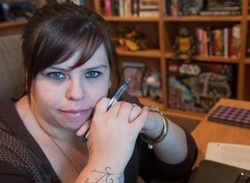 Amanda Hocking This is one of those rags-to-riches stories that inspires self-published writers. Why? Because Amanda Hocking wasn't "discovered" by an agent or a publisher. She's still self-publishing, and selling 100,000 books a month.
Amanda Hocking This is one of those rags-to-riches stories that inspires self-published writers. Why? Because Amanda Hocking wasn't "discovered" by an agent or a publisher. She's still self-publishing, and selling 100,000 books a month.Source: Jezebel
Amanda Hocking's story isn't just interesting because, at 26 years old, she's a millionaire from selling eBooks. Her tale is also fascinating because it remains a work in progress. Success brings new challenges, one of which is often defending that success. Something Hocking is having to do.
Hocking, a self-proclaimed unicorn enthusiast and Muppet activist, writes about vampires, zombies, and yes, romance. According to reports, just one year ago, the Minnesota-based writer was "impoverished," "living paycheck to paycheck," and the manuscripts she sent out were rejected by publishers all over New York. Like many authors, Hocking turned to self-publishing, creating a store on Amazon. She set the prices of her work relatively low — 99¢ to $2.99 — and for every $2.99 book she sells, she keeps 70%. Hocking tells USA Today: "To me, that was a price point that made sense for what I would be willing to spend on an e-book… I use iTunes a lot, and it's 99 cents and $1.29 a song."
Between her blog, Twitter, Facebook and word of mouth, Hocking's stories caught on; she sold 100,000 of her works in December, and over 10 months she's sold more than 900,000. She's about to buy a house, she's getting a lot of press, and Elle magazine is going to profile her. Cue the inevitable backlash.
Read the rest of the story here...
Published on June 04, 2013 15:50



